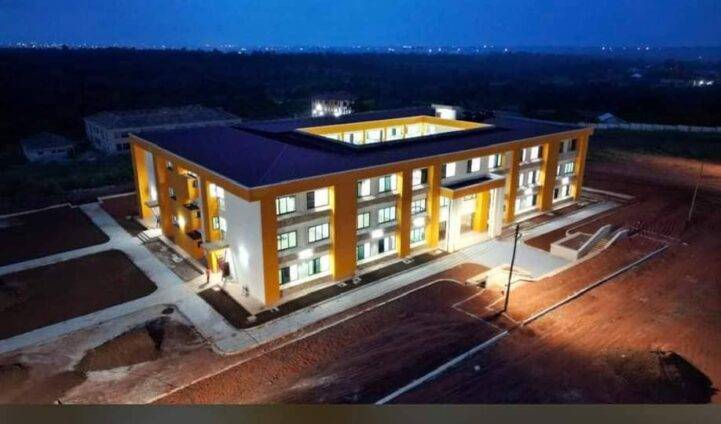•
•
•
•
•
•
•
Sewua STEM school official commissioning, marking a milestone in the country’s commitment to advancing science, technology, engineering, and mathematics (STEM) education.
The Sewua STEM School in Ghana’s Ashanti Region stands on the brink of its official commissioning, marking a milestone in the country’s commitment to advancing science, technology, engineering, and mathematics (STEM) education. This new educational facility is not just another school; it symbolizes a proactive step by the Ghanaian government to prepare young people for the demands of an increasingly technology driven global landscape. The anticipation surrounding the school’s inauguration is palpable, with both local communities and government officials expressing high hopes for the institution’s impact.
The Sewua STEM School’s establishment is part of a broader strategy aimed at strengthening Ghana’s workforce capabilities in STEM related fields. As industries worldwide lean heavily on innovation and technical expertise, many in Ghana see this school as an essential piece of infrastructure for economic growth. Local government representatives have voiced optimism that this institution will help bridge educational gaps in the region, providing students with more opportunities to excel in fields that are crucial to modern development.
The commissioning of this school is also viewed as a testament to the government’s broader commitment to sustainable growth and innovation. By creating institutions that focus on STEM, Ghana is investing in its future workforce, aiming to cultivate a new generation of tech-savvy, entrepreneurial thinkers who will lead the country’s economic transformation. Supporters believe that the Sewua STEM School could serve as a catalyst for similar projects across the nation, ultimately creating a robust network of specialized educational facilities dedicated to nurturing young talent in STEM disciplines.
One notable figure who has publicly endorsed the initiative is Kofi Ofosu Nkansah, the Chief Executive Officer of Ghana’s National Entrepreneurship & Innovation Programme (NEIP). In a recent social media post, Nkansah expressed his support, emphasizing the significance of equipping students with STEM skills. He argued that a workforce well versed in science, technology, engineering, and mathematics is essential for driving Ghana’s future economic progress. Nkansah’s support is representative of a wider appreciation for the initiative among Ghanaian leaders, who see the school as a tool for empowering the nation’s youth.
With the opening of the Sewua STEM School, Ghana aims to set a precedent for similar projects in other regions. This institution is expected to prepare students for the challenges of a rapidly evolving job market, aligning with Ghana’s goals of creating a resilient and innovative economy. By investing in STEM education, the Ghanaian government hopes to equip young people with the skills they need to succeed in high demand fields, fostering a generation that can actively contribute to the country’s development. As the school opens its doors, it is poised to inspire a shift in how education is valued and approached, not only within the Ashanti Region but across the nation. This initiative signals a significant commitment to the future, with long term benefits for Ghana's economy, workforce, and technological advancement.


